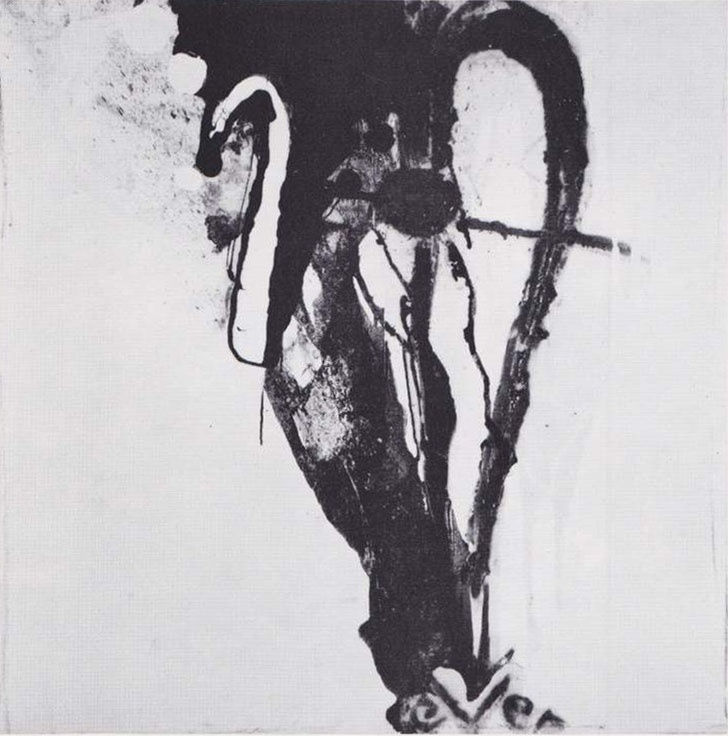BY JOHN YAU
Instead of contenting herself with the revelation of the stale perception that the mass media have emptied language of meaning, Suzanne McClelland combines works and paint to evoke the degree to which we are determined by words and the fictions they embody.
On a formal level, McClelland utilizes charcoal, acrylic, gels, clay, and rabbit-skin glue to investigate the conditional relationship between drawing and words, between painting and writing. Within these formal parameters, however, she pursues a more speculative and ultimately more engaging investigation of the zones between conventional and personal language usage. Frequently focusing on a specific word or phrase that has to do with time (titles include Always, Now, Forever, and Till [all works 1991]), McClelland explores both the power of language to generate necessary fictions and the escapist traps that words so often spring.
In Now, McClelland uses a different medium, color, and method to make each letter. By overlaying the characters as well as changing their scale, each letter is made to exist on its own separate place. The viewer, in tern, does not see the word all at once but experiences the separate characters one at a time: we see the painting and then we read it. These alternating perspectives deny the word’s accepted meaning – “all at once” or “immediately” – suggesting how words can both mean and mislead. The placement of the letters enables the viewer to read “own,” “won,” and “now” within the painting, reminding us that “now” is an abstract concept regarding our relationship to the present, and that it is most often used to frame something past or not yet arrived. “Now,” as a concept for period of time defined by what will occur within its proposed parameters, can be read as one’s demand (which the words “own” and “won” echo) on another. Thus, McClelland’s paintings ultimately address the way in which certain words embody and are employed in the exercise of power. In Always she writes the letters in different orders with no apparent agenda in mind other than to discover what alternate spellings might evoke. From the top of the painting to the bottom, the letters grow progressively larger, so that “always” takes up most of the bottom half of the painting. Given that we are all mortal and that no civilization has lasted forever, the word “always” has been, and continues to entail a fantasy projection. In contrast to those artists who use clichés – the timely, social language of certain classes – to propose the gap between words and personal experience, McClelland probes the way certain abstract words associated with romance undermine the possibility of establishing an equitable relationship between the “I” and the “other.” In this regard, McClelland’s paintings are far more open-ended and disquieting than, say, Christopher Wool’s, which employ debased public language as if this form of communication were all-determining with respect to our daily transactions. Unlike Wool and Jenny Holzer, McClelland has not settled on a particular style or mode of presentation. Her paintings are improvisational responses at once focused and nonconclusive, and they range from gestural marks to poured, gloppy gel surfaces, from handwritten words to quirky shapes, from graphic contrast in black and white to tonal shifts (different browns or blacks clotted together within one letter).
By frequently using her materials in an apparently artless (rather than composed) manner, McClelland addresses the artifice of both language and art. By picking words that freeze time, thus denying their relative nature, and then painting them in a way that embodies contingency, McClelland conveys the persistence of certain conventional fictions inscribed in both language and art. Although McClelland is young artist, she has not only moved well beyond the prevailing styles of the ‘80s, she has also arrived on the scene with a mature, resonant vision that is particular without being hermetic, accessible but never simplistic.


